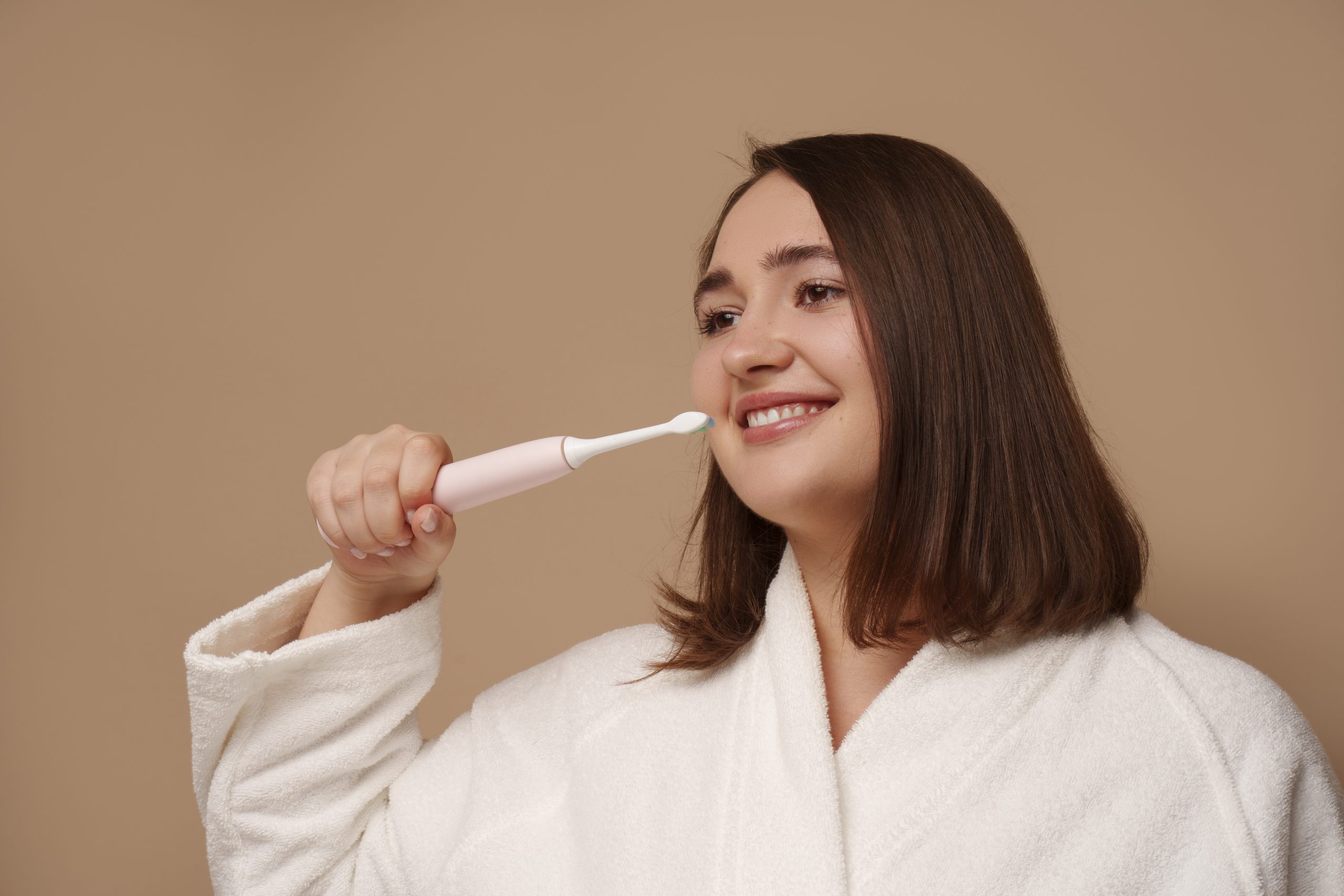Maintaining oral health relies on small, consistent actions performed each day. Dental professionals frequently refer to the five basics of oral health as the foundation for keeping the mouth in good condition. These practices are widely known, but they are not always followed consistently. Over time, gaps can contribute to tooth decay, gum disease, and unpleasant breath.
The essentials of good oral hygiene—brushing, flossing, choosing a balanced diet, limiting alcohol and tobacco, and attending routine check-ups—are simple but often overlooked. It’s easy to skip steps due to busy schedules, forgetfulness, or uncertainty about technique. If these practices are not followed consistently, there may be a greater chance of developing problems affecting the health of the teeth and gums.
This article outlines the five basics of oral health that provide the foundation for maintaining a healthy mouth. As you read, consider how these habits fit into your daily life and where you can improve. Simple daily choices—such as cutting back on sugary foods or brushing thoroughly for two minutes—may support better oral health, even with a busy schedule.
Contents Navigation
Summary of The Content
- A good routine involves brushing for two minutes twice a day with fluoride toothpaste and a soft-bristle toothbrush. This routine supports enamel strength, helps control dental plaque buildup, and contributes to long-term oral health.
- To clean spaces your toothbrush does not reach, consider using floss, interdental brushes, or a water flosser as part of your routine. This habit supports gum health and may reduce the risk of gum disease.
- Choose a balanced diet rich in tooth-friendly foods, such as fresh fruit, vegetables, and dairy, and drink fluoridated water. Limiting sugary snacks and drinks helps protect your teeth and benefits overall health.
- Avoid tobacco and moderate alcohol intake to support better oral health. Research links these lifestyle choices to a reduced risk of severe conditions, including oral cancer and dry mouth.
- Seeing a dentist on a routine basis allows for early detection of concerns and provides professional cleaning to support oral hygiene. Regular dental visits allow early detection of issues, provide tailored advice, and support long-term oral hygiene.
Why Oral Health Habits Matter
Simple routines such as brushing, flossing, and eating well can impact oral health. Missing these steps regularly allows plaque to build near the gum line, potentially causing decay, gum problems, or gum disease in advanced stages. Unattended, these issues may increase the likelihood of discomfort or losing teeth.
General well-being and oral health are interrelated. Evidence points to associations between oral health problems and broader conditions, such as diabetes, cardiovascular disease, and specific pregnancy outcomes. While good oral hygiene cannot prevent or address these conditions, supporting gum health and reducing bacteria in the mouth may contribute to better general well-being.
Consistent habits—like drinking water instead of sugary beverages and keeping up with dental check-ups—may help support oral health and general well-being.
The Five Basics of Oral Health
Establishing regular oral hygiene does not need to be difficult. Five simple steps are widely recognised as the basis for maintaining healthy teeth and gums. Consistently following these habits can support oral health and reduce the chance of common issues like decay or gum disease. Whether you’re just beginning to establish healthier habits or seeking to enhance your existing routine, it’s always possible to make a positive shift. The outline below offers a practical guide to maintaining a healthier smile—at any age.
Brushing Effectively Twice a Day
Brushing is an essential step in oral care, but it is often done too briefly or without proper technique. Brushing twice daily—once in the morning and once before bed—is widely recommended because it helps manage plaque and may lower the risk of tooth decay. Skipping nighttime brushing leaves food and bacteria on your teeth overnight, which can contribute to plaque buildup along the gum line.
To support effective brushing:
- A two-minute brushing routine helps to adequately clean the front, back, and chewing surfaces. A soft-bristle toothbrush with a small head can help you reach every area of your mouth more effectively.
- Holding your toothbrush at a 45-degree angle to the gumline and using gentle circular motions helps remove plaque effectively without damaging your gums.
- Applying too much pressure while brushing can wear down tooth enamel and irritate the gums, so it’s important to brush gently.
- A pea-sized amount of fluoride toothpaste is recommended because it helps strengthen tooth enamel and reduce the risk of cavities.
- Brushing your tongue is an important step that helps remove bacteria that can contribute to bad breath and affect oral hygiene.
- After brushing, it’s recommended to spit out the excess toothpaste but avoid rinsing with water, as leaving fluoride on your teeth longer helps provide continued protection.
Flossing Daily for Cleaner Gums
Even with thorough brushing, your toothbrush cannot reach all areas between your teeth. Flossing once a day helps remove plaque and food particles from tight spaces and along the gumline, areas where problems such as tooth decay or gum disease may begin.
If plaque is not removed, it may harden into calculus (tartar), which can irritate the gums and contribute to gingivitis or, in some cases, periodontitis. Regular flossing may also support gum health, reduce bleeding, and help with fresher breath.
Technique matters:
- Shape the floss into a “C” curve against the tooth, then carefully slide it along the side and slightly under the gumline. This motion assists in removing plaque while being gentle on the gums.
- Avoid snapping the floss directly onto the gums, as this can cause discomfort or injury to the soft tissues.
- Wrap the floss around your middle fingers and guide it carefully using your thumbs and index fingers to maintain control and reach all areas.
Alternatives to flossing:
- Interdental brushes are small, soft-bristled tools that are gentle on the gums and ideal for cleaning between teeth. They are handy for people with braces, dental bridges, or larger gaps between their teeth.
- Water flossers use a targeted stream of water to remove food particles and plaque between the teeth and along the gumline. People with sensitive gums or reduced dexterity often prefer them.
- Consistency is the most crucial factor. Whether using floss, interdental brushes, or a water flosser, this daily step effectively supports gum health.
Eating a Balanced, Tooth-Friendly Diet
Every day diet choices impact general health as well as oral health. Maintaining a balanced diet is key to caring for teeth and gums. Foods that provide essential vitamins and minerals support enamel, aid in controlling bacteria, and may help reduce the risk of cavities.
Bacteria feeding on sugars from sweet foods or drinks produce acids that can weaken enamel and contribute to cavities. Acidic beverages such as soft drinks, energy drinks, and sports drinks may have a similar effect. By contrast, foods rich in calcium, phosphorus, and vitamins can support stronger teeth and gums. Drinking fluoridated water also helps rinse away food particles and neutralise acids.
Tooth-friendly choices include the following:
- Calcium-rich foods:
Dairy products, nuts, lean proteins, and leafy greens provide essential nutrients like calcium and phosphorus, which help support strong teeth and healthy gums. - High-fibre fruits and vegetables:
Whole grains, fresh fruits, and vegetables stimulate saliva flow and help neutralise harmful acids in the mouth. - Fluoridated water:
Drinking plenty of water helps wash away food particles and provides fluoride, which strengthens enamel and reduces cavity risk.
Foods and drinks that may be most limited:
Sugary and acidic beverages:
Soft drinks, energy drinks, and sports drinks are often high in sugar and acid, which can erode enamel and contribute to tooth decay.
Sticky sweets and lollies:
Sticky or sugary foods cling to the teeth and feed bacteria, increasing the risk of plaque buildup and cavities.
Frequent snacking:
Snacking often between meals reduces saliva flow and gives bacteria more time to produce enamel-damaging acids.
Limiting Alcohol and Tobacco
Both tobacco and high alcohol intakes are recognised as risk factors for oral health. They may damage teeth and gums, increase the likelihood of gum disease, and are linked with a higher risk of oral cancer.
Smoking can reduce blood flow to the gums, making it harder for the body to fight infection and heal. Over time, this may contribute to gum problems, staining, and persistent bad breath. Alcohol, particularly when consumed frequently, can irritate the mouth’s soft tissues and may contribute to dry mouth, reducing saliva’s protective effects. These conditions can make it easier for plaque to build up, increasing the risk of tooth decay.
Oral health effects may include the following:
- Smoking:
Smoking is associated with an increased risk of tooth staining, persistent bad breath, and gum disease due to reduced blood flow and immune response in the gums. - Alcohol:
Regular or excessive alcohol intake can irritate oral tissues, contribute to dry mouth, and increase the likelihood of tooth decay by reducing saliva’s protective function. - Combined effects:
Using tobacco and alcohol together significantly increases the risk of developing oral cancer, as the combined exposure intensifies their harmful effects on oral tissues.
Avoiding tobacco and moderating alcohol are essential steps in supporting oral and overall well-being. A dentist can provide strategies and resources for those wanting to make lifestyle changes.
Regular Dental Check-Ups
Even with regular brushing, flossing, and a balanced diet, some mouth areas are difficult to clean thoroughly at home. Routine oral exams are essential to preventive care, as they allow a dental professional to monitor changes over time and provide tailored advice.
During a routine visit, your dentist may recommend a professional cleaning to remove plaque and calculus that brushing and flossing can miss. In some cases, preventive treatments such as fluoride applications may also be advised to help support enamel strength.
What to expect at a routine check-up may include the following:
- Dental examination:
Your dentist will examine your teeth and gums to identify early signs of tooth decay, oral disease, or other dental health concerns. - Professional cleaning:
A scale and clean will help remove built-up plaque and hardened calculus (tartar) that regular brushing and flossing may miss. - Oral cancer screening:
Many dental professionals perform a visual and physical examination to detect early signs of oral cancer or abnormalities in the soft tissues. - Preventive treatments:
Depending on your oral health needs, your dentist may recommend additional preventive care, such as fluoride application. - Personalised oral hygiene advice:
You will receive tailored guidance on brushing techniques, flossing, and oral care tools suited to your needs.
Check-ups are also an opportunity to discuss concerns like bleeding gums, dry mouth, or sensitivity.
Overcoming Common Barriers to Good Oral Health
Even with good intentions, many people struggle to maintain consistent oral care. Barriers such as time pressures, discomfort, or uncertainty about techniques can make daily habits harder to follow. Recognising these challenges is the first step towards improving routines.
Common barriers may include the following:
- Busy lifestyles:
Hectic schedules may lead to skipping brushing or delaying check-ups. Minor adjustments—like keeping a travel toothbrush handy—can make oral care more achievable. - Lack of awareness:
Some people may not realise how oral health affects quality of life. For example, gum problems can cause discomfort, bleeding, or tooth loss if not managed. Research has also found associations between poor oral health and conditions such as heart disease, stroke, and diabetes. While oral care cannot prevent or manage these conditions, supporting gum health may contribute to overall well-being. - Discomfort:
Sensitivity or bleeding gums can discourage flossing, but alternatives such as interdental brushes or water flossers may be more comfortable. - Forgetfulness:
Linking oral care with existing habits (such as brushing after meals) or using reminders can improve consistency.
Simple strategies may include the following:
- Keeping a travel toothbrush and toothpaste in your bag or desk makes it easier to maintain oral hygiene while away from home.
- Using phone reminders or habit-tracking apps can help reinforce daily routines like brushing and flossing.
- Asking your dentist for technique tips can help improve how you clean your teeth and make your oral care routine more comfortable.
- Exploring different tools such as floss, interdental brushes, or water flossers can make oral care more comfortable—especially for those with sensitive gums or reduced dexterity.
Busy Lifestyles and Time Constraints
Modern life is busy. With work, family, and social commitments, it’s easy for oral care to fall lower on the list of daily priorities. Many people admit to skipping nightly brushing, forgetting to floss, or delaying regular dental visits because of time pressures. Unfortunately, missing these steps regularly may contribute to plaque buildup, gum irritation, or other oral health problems over time.
With minor adjustments, oral care is more manageable. Keeping a travel toothbrush and toothpaste in your bag or desk drawer makes it easier to brush after meals, even on hectic days. Setting a phone reminder for nightly flossing can help turn it into a routine. Pairing oral care with existing habits—such as brushing right after your evening meal—saves time and improves consistency.
Think of these steps as self-care. Like taking a short walk or drinking a glass of water, a few minutes of oral care daily can make a positive difference.
Lack of Knowledge or Awareness
Sometimes the barrier to good oral health is not a lack of motivation but rather a lack of knowledge about its impact. Issues like bleeding gums, plaque buildup, or decay may affect more than just the teeth and gums. Research has found associations between poor oral health and wider conditions such as heart disease, stroke, and diabetes. Good habits may not prevent these conditions, but they play an important role in supporting oral health and overall well-being.
Awareness also means knowing the proper techniques. Some people may not realise the importance of brushing for two minutes, using a pea-sized amount of fluoride toothpaste, or cleaning between their teeth effectively. Daily brushing may not fully protect against cavities or gum disease without the right methods.
The ideal way to stay informed is through regular dental check-ups. A dentist or oral healthcare professional can demonstrate effective brushing and cleaning techniques, suggest tools like interdental brushes or water flossers, and offer personalised advice tailored to your situation. For ongoing learning, reputable resources like the Australian Dental Association offer reliable information.
Discomfort or Sensitivity Issues
Some people interrupt their oral care routines due to discomfort, not a lack of time or awareness. Bleeding gums, sensitivity, or pain during flossing may tempt people to skip this step. These symptoms can often signal early gum problems such as gingivitis. If not managed, these issues may increase the risk of progressing to more advanced conditions such as periodontitis.
There are ways to make oral care more comfortable. Switching to interdental brushes or a water flosser may be gentler than string floss, especially for people with sensitive gums. Proper technique also matters. Gently gliding the floss along the gum line, rather than snapping it down, can reduce irritation while still removing plaque effectively.
If discomfort continues, speak with a dental professional. They may suggest approaches, such as desensitising toothpaste or in-clinic preventive treatments, depending on your needs. These steps may make it easier to maintain consistent oral hygiene with less discomfort.
Forgetfulness and Motivation
Even with good intentions, many people forget to brush or skip flossing after a long day. These common lapses may contribute to plaque buildup, foul breath, or other concerns over time.
Linking oral care to existing habits improves consistency. Brushing after breakfast and before bed, or flossing after your evening meal, makes routines easier to remember. Habit-tracking apps, reminders, or calendars may also help. Rewarding yourself for streaks—such as a week of flossing—can boost motivation. If challenges persist, a dental professional can provide personalised strategies.
Final Thoughts
Strong oral health often stems from consistent, everyday habits. Brushing twice daily, cleaning between your teeth, and maintaining a balanced diet all contribute to a healthier mouth. Limiting alcohol and tobacco, along with attending regular dental check-ups, also supports long-term overall health.
These five basics of oral health are simple yet frequently overlooked, particularly during busy periods. Taking a moment to assess your current routine may reveal straightforward opportunities for improvement. Whether it’s brushing for the full two minutes or scheduling that long-overdue dental visit, small, consistent steps can make a meaningful impact over time.
If you haven’t visited a dentist in a while, scheduling a check-up can help support the health of your teeth and gums. Our team offers personalised advice and care to help patients maintain the five basics of oral health as part of their routine.





